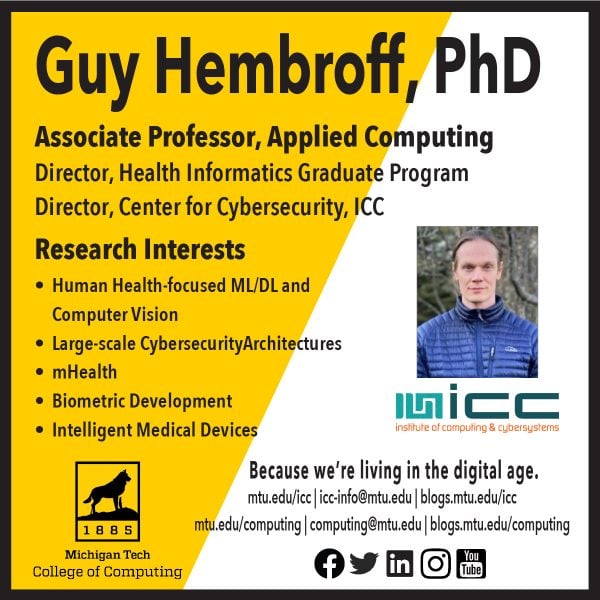
The North American Electric Reliability Corporation (NERC) is hiring a Bulk Power System Cybersecurity Specialist to join a team working with industry to help advance the concepts of a cyber-physical system and integration of cyber and physical security into conventional grid planning, operations, design, and restoration activities.
The position requires a bachelor’s degree from an accredited four-year college or university.
Download more information about the position here.
Visit the NERC Career Opportunities webpage here.
Position Summary
The Bulk Power System Cybersecurity Specialist is responsible for providing cyber and physical security subject matter expertise in support of the Electric Reliability Organization (ERO) Enterprise evaluation and management of risks to reliability, security, and resilience of the bulk power system (BPS). This role will assist, lead, and manage various projects related to supporting industry integration of cyber and physical security into all aspects of system planning, operations, and restoration. It will also help industry with integrating new technologies and addressing emerging reliability and security issues. The role will coordinate with other departments within NERC as well as with the E-ISAC. This position reports to the Senior Manager of Bulk Power System Security and Grid Transformation.
The North American Electric Reliability Corporation (NERC) is a not-for-profit international regulatory authority whose mission is to assure the effective and efficient reduction of risks to the reliability and security of the grid. NERC develops and enforces Reliability Standards; annually assesses seasonal and long‐term reliability; monitors the bulk power system through system awareness; and educates, trains, and certifies industry personnel.

On May 18, 2021, Dr. Guy Hembroff, Applied Computing, presented an invited talk at a meeting of Michigan’s Health Information Management Systems Society (HIMSS). Dr. Hembroff discussed his work developing a trusted framework architecture designed to improve population health management and patient engagement.
The talk demonstrated his team’s work in the development of accurate geo-tagged pandemic prediction algorithms, which are used to help coordinate medical supply chains to care for patients most vulnerable to COVID-19, an innovation that can be extended to help improve general population health management.
The framework of the pandemic prediction architecture, which aggregates longitudinal patient health data, including patient generated health data and social determinants of health, is a holistic and secure mHealth community model. The model can help Michigan residents overcome significant barriers in healthcare, while providing healthcare agencies with improved and coordinated population management and pandemic prediction.
The architecture’s machine learning algorithms strategically connect residents to community resources, providing customized health education aimed to increase the health literacy, empowerment and self-management of patients. The security of the architecture includes development of unique health identifiers and touch-less biometrics capable of large-scale identity management.
Dr. Guy Hembroff is an associate professor in the Applied Computing department of the Michigan Tech College of Computing, and director of the Health Informatics graduate program. His areas of expertise are network engineering, medical/health informatics, biometric development, intelligent medical devices, data analytics, and cybersecurity.
The event was sponsored by HIMSS and Blue Cross Blue Shield of Michigan (BCBSM).
A mission-driven non-profit, the Healthcare Information and Management Systems Society, Inc. (HIMSS) is a global advisor and thought leader supporting the transformation of the health ecosystem through information and technology, according to the organization’s website.

Dr. Guy Hembroff presented a talk to representatives of a number of digital health startup companies May 20, 2021, as part of an event hosted by the the HealthSpark program of 20 Fathoms, an entrepreneurial-focused member organization in Traverse City, Michigan.
The startup companies, in many U.S. locations, are being mentored by 20 Fathoms members.
Dr. Hembroff is an Associate Professor of Applied Computing and director of the Health Informatics Master of Science degree program at Michigan Tech.
Dr. Hembroff’s talk, “Cybersecurity and Privacy + X: Best Practices for Health Startups,” was designed to help startup companies gain awareness of and plan strategically for the cybersecurity and privacy elements of their company, affiliations with vendors, and the rights and protections of consumers.
Talk topics included an overview of data security and privacy, web security, scams and fraud detection and protection, mobile device security, network security, incident response, digital health data integration and interoperability, and protection from ransomware attacks.
The HealthSpark program is Traverse City’s digital health accelerator. The organization advances innovation and facilitates solutions that will resolve today’s challenges in rural healthcare. A community-focused initiative, HealthSpark work sto bring world-class healthcare solutions to rural patients through the advancement of digital technology.

20Fathoms is a membership organization for entrepreneurs, intrapreneurs, tech professionals, creatives, and other innovators in the the Traverse City, Michigan, region.
Led by a team of experts who have walked-the-walk, we provide services, resources, support, and a robust network to help our members accelerate both their careers and businesses, according to the 20Fathoms website.